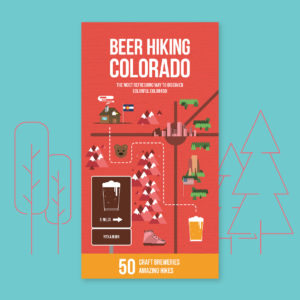My Wonderful Life™ (On Instagram)
I’ve come across a number of articles in the media lately criticizing Instagram for giving us all distorted, unrealistically perfect impressions of one another’s lives. In ESPN’s heart-breaking story about Penn student Madison Holleran’s suicide, the author wrote, “Checking Instagram is like opening a magazine to see a fashion advertisement. Except an ad is branded as what it is: a staged image on glossy paper. Instagram is passed off as real life.”
Shortly after, The New York Times did in-depth report on college-campus suicides, suggesting that “Madison judged her social life as inferior to what she saw in the online posts of her high school friends.”
I didn’t know Madison, but I think of her a lot—especially when I press the “Share” button on Instagram beneath another photo I’ve taken. In doing so, am I making someone out there in the world feel sad?
Lord, I sure hope not. I’ve struggle with ambivalence about other social channels (hint: one of them rhymes with Lacebook) for years, and blogged about it before— and more than once, even. In fact, I resisted getting an account on Instagram for years because of this fear—that it would contribute to false impressions of what my daily life is like. What, after all, could be a less authentic representation of one’s life than a carefully curated selection of altered images?
But, at the same time, where did this baffling notion originate that Instagram, simplistic and edited as it is, could be even vaguely representative of the complexities of “real life”? Or is that implication more insidious than that—affecting us even if, logically, our brains know better?
I first got on Instagram about this time last year because, as Trail Runner’s social-media maven at the time, I figured I’d better learn how to maintain a personal feed Instagram before trying to manage a business one. In the time since, I admit I’ve come to enjoy using it a great deal. I love seeing the photographs that others share, especially nature and mountain landscapes—which, of course, happen to also be the kinds of images I like to take and share myself.
And yet, every time I come across another article in the media about someone’s depression being exacerbated by Instagram, I feel the need to shout, “This collection of photos is not representational of my life!”
Rather, it is primarily a collection of the most beautiful or awe-inspiring things I have the privilege of seeing here and there—which, now that I am freelancing full-time, yes, I have more time and flexibility to seek out. But please, let me not unfairly romanticize this whole I-quit-my-job-to-traipse-around-the-mountains “lifestyle” that I’m sure my current Instagram feed, sans disclaimer, conveys.
Here is what I don’t post on Instagram: my dwindling savings account while traveling. The loneliness that can stem from working out of a home office (“office”) 100% of the time. My uncertainties about the future.
I can’t photograph the sometimes crippling amounts of criticism I tend to inflict on myself, now that I’m my own boss. The anxiety I have about whether I’ll be able to continue supporting myself on my freelance income. The paralysis I feel when I have a specific writing project in mind, but am so fearful it will turn out inferior on paper to how I imagine it that I can’t even bring myself to get started. (Ann Patchett once articulated this fear well: “Only a few of us are going to be willing to break our own hearts by trading in the living beauty of imagination for the stark disappointment of words.”)
I love running in the mountains for many reasons, but one of them is to quiet my mind—which can otherwise sometimes be a tiresomely frenetic place. But I can’t photograph that. Nor can I photograph the guilt I occasionally feel for being so privileged and indulgent that I’ve determined running all day long to be a worthy use of my time.
Traveling is great, no doubt. Living in small mountain towns is great. Being able to set my own schedule and work from anywhere in the world is great—and sure, I can photograph details in my daily life that highlight these pleasures. But I can’t press a shutter button and capture this—that the downside of living in so many different, beautiful places and meeting so many different, wonderful people is the sensation of loss and melancholy nostalgia for all the places and people you’ve left behind.
Difficult thoughts are a gift all their own—challenging, yet frequently rich with information for the future, fodder for art, and a thread that ultimately keeps us humans knitted together in empathy for one another. Even if I could capture all of that with the lens of a camera, though, would Instagram be the right venue for sharing such?
Other people’s photos inspire me to keep hiking, running, and exploring, to keep making efforts to visit new places in this amazing world we inhabit. (Other people’s words inspire me in different ways—to keep writing, for starters.) I must say I’m grateful to Instagram for making it easy for me to find (and share) such photos—and, so long as others seem to be deriving some genuine joy or inspiration from the ones I share, I’m likely to continue doing the same.
P.S. But please, if I ever start to become one of those people who uses the phrase “hashtag [insert word here]” in everyday speech in a non-ironic manner, please kindly tell me to stop. There are limits to my fondness for The Gram.




